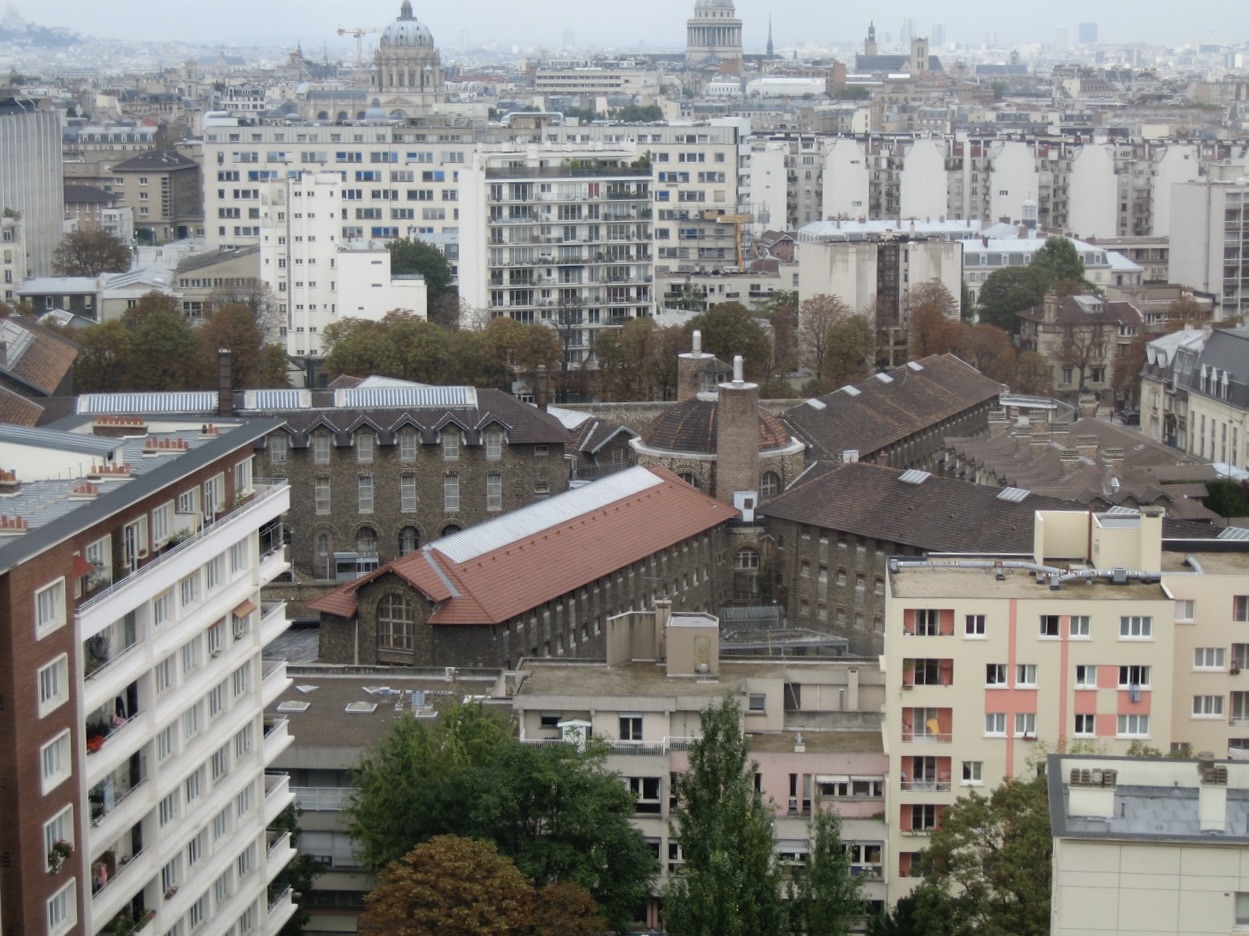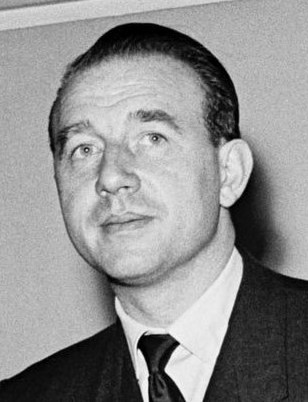|
Directorate Of Territorial Surveillance
The Direction de la Surveillance du Territoire (DST; en, Directorate of Territorial Surveillance) was a directorate of the French National Police operating as a domestic intelligence agency. It was responsible for counterespionage, counterterrorism and more generally the security of France against foreign threats and interference. It was created in 1944 with its headquarters situated at 7 rue Nélaton in Paris. On 1 July 2008, it was merged with the '' Direction centrale des renseignements généraux'' into the new '' Direction centrale du renseignement intérieur''. The DST Economic Security and Protection of National Assets department had units in the 22 regions of France to protect French technology. It operated for 20 years, not only on behalf of defense industry leaders, but also for pharmaceuticals, telecoms, the automobile industry, and all manufacturing and service sectors. History The Surveillance du Territoire (ST) was a counterintelligence and counter terrorism p ... [...More Info...] [...Related Items...] OR: [Wikipedia] [Google] [Baidu] |
Direction Centrale Du Renseignement Intérieur
The General Directorate for Internal Security (french: link=no, Direction générale de la Sécurité intérieure, DGSI) is a French security agency. It is charged with counter-espionage, counter-terrorism, countering cybercrime and surveillance of potentially threatening groups, organisations, and social phenomena. The agency was created in 2008 under the name Central Directorate of Interior Intelligence (french: link=no, Direction centrale du renseignement intérieur, DCRI), merging the ''direction centrale des Renseignements généraux'' (RG) and the ''direction de la surveillance du territoire'' (DST) of the French National Police. It acquired its current name in 2014, with a small structural shift: contrary to the DCRI which was part of the National Police, the DGSI reports directly to the Ministry of the Interior. The DGSI is headed by General Director Patrick Calvar. The agency is informally known as the "RG", a nickname formerly used for the ''Direction centrale des r ... [...More Info...] [...Related Items...] OR: [Wikipedia] [Google] [Baidu] |
Operation Condor
Operation Condor ( es, link=no, Operación Cóndor, also known as ''Plan Cóndor''; pt, Operação Condor) was a United States–backed campaign of political repression and state terror involving intelligence operations and assassination of opponents. It was officially and formally implemented in November 1975 by the right-wing dictatorships of the Southern Cone of South America. Due to its clandestine nature, the precise number of deaths directly attributable to Operation Condor is highly disputed. Some estimates are that at least 60,000 deaths can be attributed to Condor, roughly 30,000 of these in Argentina, and the Archives of Terror list 50,000 killed, 30,000 disappeared and 400,000 imprisoned. Additionally, American political scientist J. Patrice McSherry gives a figure of at least 402 killed in Condor operations which crossed national borders in a 2002 source, and mentions in a 2009 source that of those who "had gone into exile" and were "kidnapped, tortured and killed ... [...More Info...] [...Related Items...] OR: [Wikipedia] [Google] [Baidu] |
Bernard Gérard (intelligence Officer)
Bernard Gérard (born 27 September 1932, died 24 November 2011, Draguignan) was a French intelligence officer. He was director of the Direction de la surveillance du territoire from 1986 until 1990. He had previously been the High Commissioner of the Republic in French Polynesia )Territorial motto: ( en, "Great Tahiti of the Golden Haze") , anthem = , song_type = Regional anthem , song = " Ia Ora 'O Tahiti Nui" , image_map = French Polynesia on the globe (French Polynesia centered).svg , map_alt = Location of Frenc ..., from March 1985 to 1986. References French police officers 1932 births 2011 deaths Prefects of Loiret Prefects of Ain {{France-bio-stub ... [...More Info...] [...Related Items...] OR: [Wikipedia] [Google] [Baidu] |
Yves Bonnet
Yves Bonnet (born 20 November 1935) is a senior French civil servant and politician. He was prefect and director of the DST from 1982 to 1985. A member of the UDF, he served as deputy for the unified party from 1993 to 1997, before joining the National Rally during the regional elections of 2021. Early life Yves Bonnet was born on November 20, 1935, in Chartres, France. He is the son of Henri Bonnet, Diplomat and former mayor of Châteaudun. Yves Bonnet lived his childhood in this city, doing all his schooling there. He studied political science and graduated from the Paris Institute of Political Studies in the late 1950s. During the Algerian war, he was an officer of the contingent. Career He joined the prefectural body in 1958. Sub-prefect of La Trinité from 1968 to 1970, Arles from 1974 to 1976, Cherbourg (1976-1978) and of Dunkirk (1978-1981), he was then appointed prefect of Mayotte between January and of November 1982 and was appointed by President François ... [...More Info...] [...Related Items...] OR: [Wikipedia] [Google] [Baidu] |
Henri Biard
Henri Biard was the director of the Direction de la surveillance du territoire (DST), the French counterintelligence and domestic intelligence service from 1972 to 1974. Biard ordered DST agents to illegally wiretap the offices of Le Canard enchaîné (; English: "The Chained Duck" or "The Chained Paper", as is French slang meaning "newspaper") is a satirical weekly newspaper in France. Its headquarters is in Paris. Founded in 1915 during World War I, it features investigative journalism a ..., a French newspaper. When this decision was made public, Biard was forced to resign. References *Wendell L. Minnick. ''Spies and Provocateurs''. p. 17 French spies {{France-bio-stub ... [...More Info...] [...Related Items...] OR: [Wikipedia] [Google] [Baidu] |
Vladimir Vetrov
, nickname = , image = , caption = , allegiance = Soviet Union later France , service = KGB, DST , serviceyears = , rank = Lieutenant Colonel , operation = Farewell Dossier , award = , codename1 = Farewell , codename2 = , codename3 = , codename4 = , codename5 = , codename6 = , codename7 = , codename8 = , codename9 = , other = Double agent , birth_name = Vladimir Ippolitovich Vetrov , birth_date = , birth_place = , death_date = , death_place = Moscow, Soviet Union , death_cause = Execution , buried = , height = , nationality = USSR , religion = , residence = , parents = , spouse = , children = , occupation = , alma_mater = , si ... [...More Info...] [...Related Items...] OR: [Wikipedia] [Google] [Baidu] |
Carlos The Jackal
Ilich Ramírez Sánchez (; born 12 October 1949), also known as Carlos the Jackal ( es, link=no, Carlos el Chacal) or simply Carlos, is a Venezuelan convicted of terrorist crimes, and currently serving a life sentence in France for the 1975 murder of an informant for the French government and two French counterintelligence agents. While in prison he was further convicted of attacks in France that killed 11 and injured 150 people and sentenced to an additional life term in 2011, and then to a third life term in 2017. A committed Marxist–Leninist, Ramírez Sánchez was one of the most notorious political terrorists of his era, protected and supported by the '' Stasi'' and the KGB. When he joined the Popular Front for the Liberation of Palestine (PFLP) in 1970, recruiting officer Bassam Abu Sharif gave him the code name "Carlos" because of his South American roots. After several bungled bombings, Ramírez Sánchez led the 1975 raid on the Organization of the Petroleum Exporting Cou ... [...More Info...] [...Related Items...] OR: [Wikipedia] [Google] [Baidu] |
Raymond Marcellin
Raymond Marcellin (19 August 1914 in Sézanne, Marne – 8 September 2004) was a French politician. Biography The son of a banker, he studied law at the University of Strasbourg and the University of Paris. He worked as a lawyer for three years, before being called into the army in September 1939. He was captured by the Wehrmacht, but managed to escape and return to France. Thanks to Maurice Bouvier-Ajam, he found a position in the Vichy regime. His job was to diffuse the ideas of the Révolution nationale among youth and professional associations. He also taught at the University Jeune-France, a Vichy organization. For these services, he received the Order of the Francisque. Later, he joined the Résistance network Alliance of Marie-Madeleine Fourcade and Georges Loustaunau-Lacau. After the Libération, he was a gaullist candidate to the 1946 election in the Morbihan. However, he did not join De Gaulle's RPF, and caucused with the independents. He initially supported the ... [...More Info...] [...Related Items...] OR: [Wikipedia] [Google] [Baidu] |
Canard Enchaîné
Canard is French for duck, a type of aquatic bird. Canard may also refer to: Aviation *Canard (aeronautics), a small wing in front of an aircraft's main wing * Aviafiber Canard 2FL, a single seat recreational aircraft of canard design * Blériot V canard, an early French aircraft built by Louis Blériot in 1907, and one of the first monoplanes *Voisin Canard, aircraft developed by the Voisin brothers Persons *Marius Canard (1888–1982), French Orientalist and historian * Nicolas-François Canard (c. 1750 – 1833), French mathematician and economist Places *Canard, Nova Scotia, Canada, a group of hamlets and villages *Canard River, a river in Nova Scotia, Canada *Rivière-aux-Canards (River of the ducks), a village in New France (now Canada) from 1670 until 1755 *Rivière aux Canards (Anticosti Island), a tributary of the Gulf of Saint Lawrence in L'Île-d'Anticosti, Quebec, Canada Dishonesty *"Canard" is a dated term for a false, defamatory story **Antisemitic canard, ... [...More Info...] [...Related Items...] OR: [Wikipedia] [Google] [Baidu] |
Microphone
A microphone, colloquially called a mic or mike (), is a transducer that converts sound into an electrical signal. Microphones are used in many applications such as telephones, hearing aids, public address systems for concert halls and public events, motion picture production, live and recorded audio engineering, sound recording, two-way radios, megaphones, and radio and television broadcasting. They are also used in computers for recording voice, speech recognition, VoIP, and for other purposes such as ultrasonic sensors or knock sensors. Several types of microphone are used today, which employ different methods to convert the air pressure variations of a sound wave to an electrical signal. The most common are the dynamic microphone, which uses a coil of wire suspended in a magnetic field; the condenser microphone, which uses the vibrating diaphragm as a capacitor plate; and the contact microphone, which uses a crystal of piezoelectric material. Microphones typically n ... [...More Info...] [...Related Items...] OR: [Wikipedia] [Google] [Baidu] |
Plumber
A plumber is a tradesperson who specializes in installing and maintaining systems used for potable (drinking) water, and for sewage and drainage in plumbing systems.Employment and Occupations in the Skilled Trades in Michigan , Michigan Department of Technology, Management, and Budget, Bureau of Labor Market Information and Strategic Initiatives (June 2013). History The origin of the word "plumber" dates from the . Roman roofs used lead in conduits and drain pipes and some were also covered with lead; lead was also used for |
Dirección De Inteligencia Nacional
The Dirección de Inteligencia Nacional ( en, National Intelligence Directorate) or DINA was the secret police of Chile during the dictatorship of Augusto Pinochet. The DINA has been referred to as "Pinochet's Gestapo". Established in November 1973 as a Chilean Army intelligence unit headed by Colonel Manuel Contreras and vice-director Raúl Iturriaga, the DINA was then separated from the army and made an independent administrative unit in June 1974 under the auspices of Decree 521. The DINA existed until 1977, after which it was renamed the ''Central Nacional de Informaciones'' ( en, National Information Center) or CNI. In 2008, the Chilean Army presented a list of 1,097 DINA agents to Judge Alejandro Solís. DINA internal suppression and human rights violations Under decree #521, the DINA had the power to detain any individual so long as there was a declared state of emergency. Such an administrative state characterized nearly the entire length of the Pinochet government. ... [...More Info...] [...Related Items...] OR: [Wikipedia] [Google] [Baidu] |




